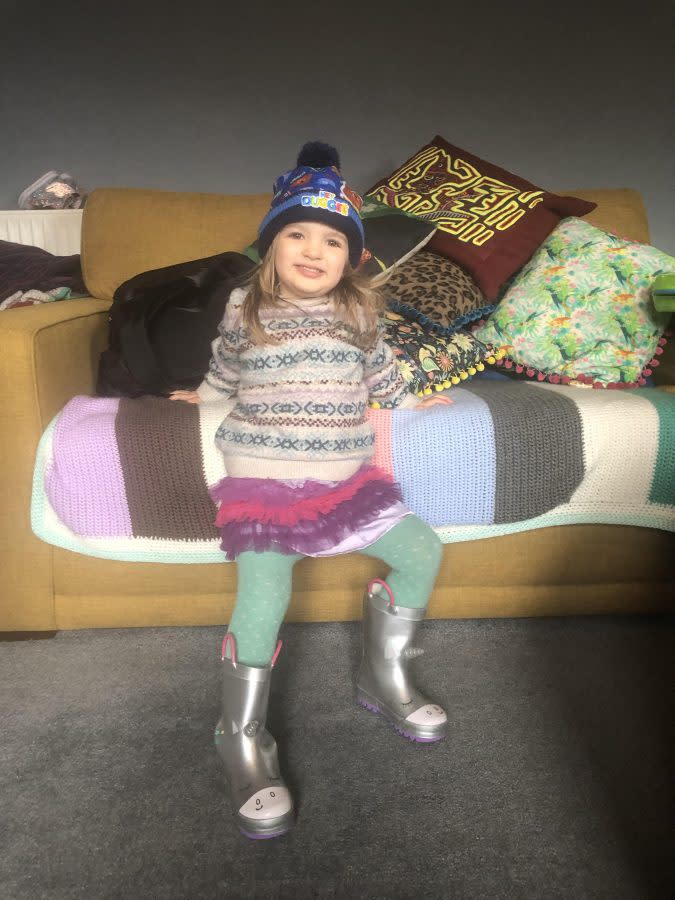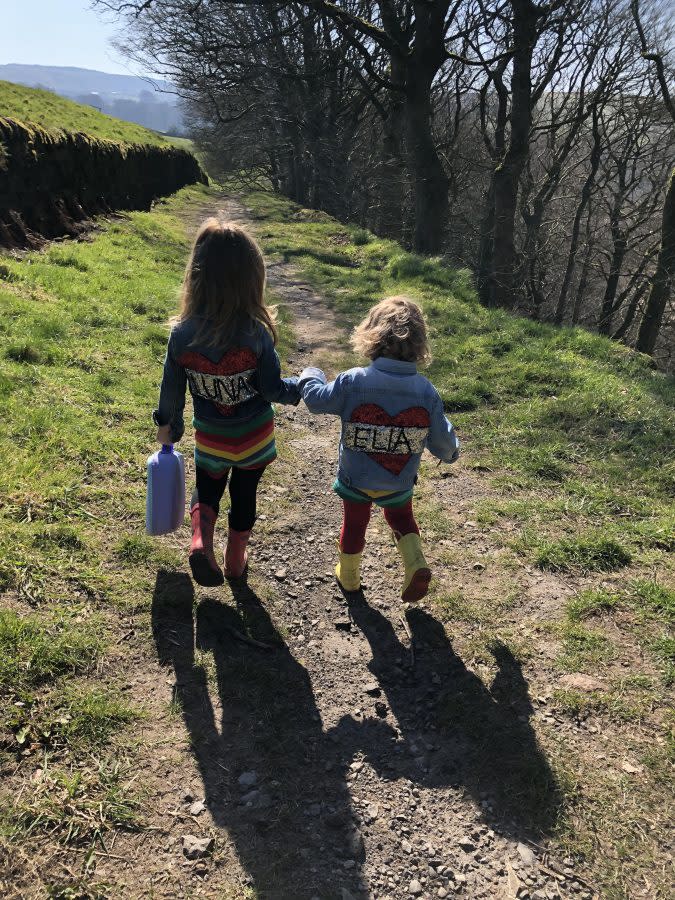Self-isolation is exacerbating my fears about passing my social anxiety onto my children
In the months leading up to having my eldest daughter, the people closest to me often asked about my fears. Was I scared about how I’d balance motherhood with my career? Did the thought of pooping on the birthing table irk me? How the heck would I be able to afford to look after a whole human child? As a pathological worrier, I agonized about all of it. But if there was one worry that far eclipsed the others, it was my fear of passing down my anxiety to my child. Particularly, my social anxiety.
For a while, I was able to quiet my fears. When my daughter was born, and when her sister came 19 months later, I pushed myself to go to as many baby groups as possible. I socialized with new people and encouraged my kids to do so, too. I committed to making mom friends, so that our children might become friends as well. When my daughters are with me, I try to talk to people. Sure, I might be grappling with an internal monologue about my failings, climate change, or my finances, but I figure my daughters won’t notice.
Now that they’re three and one and a half years old, Luna and Elia are social butterflies; they thrive off being the center of attention. At baby and toddler groups, they sing and dance at the forefront. They are confident in themselves, in a way I never was until I became an adult. They even seem secure in the belief that people (for the most part) are interesting, friendly, and worth getting to know. Honestly, I thought I’d nailed it.
Then came coronavirus (COVID-19).

In order to prevent the spread of coronavirus, the Centers for Disease Control and Prevention (CDC) has recommended social distancing. All around the world, we have been told to self-isolate as much as possible, leaving our homes only to buy food and medicine, or go to work if working from home is truly impossible. For the first time in my life, my tendency to hermit myself and avoid socializing in order to be spared the anxiety is not only an acceptable behavior, but also an encouraged one. However, my concern about passing on my social anxiety to my children has become wholly exacerbated.
For as long as I can remember, my anxiety has caused panic attacks to happen in office bathrooms and after many failed job interviews, terrible first dates, existential dramas, and paranoia-fueled hangouts with friends. Mental health issues also run in my family; my parents and the majority of my siblings have all suffered from varying degrees of anxiety.
I don’t want my daughters to go through that. I don’t want them to feel out of control with their own thoughts. I don’t want them to feel like they can’t talk to or hang out with other human beings.
But here we are, unable to let our children see their relatives, friends, or peers. We aren’t allowed to go to parks. We can’t mingle with passerbys on our brief walks for fresh air outside.

Last week, for example, my family and I ventured out of our home for our one allotted walk of the day (as per the U.K.’s self-isolation rules). My eldest suddenly spotted a man dressed in a lion onesie who was with his own family: a partner, a toddler in a stroller, and a baby wrapped snugly in its mama’s front carrier.
The lion-man began happily “rawring” at us from across the road, hoping (I imagine) to elicit some joy during these strange, difficult times. Under normal circumstances, I would’ve let my daughter pull me toward him. She loves meeting new people—particularly silly-seeming ones—yet while we usually end up socializing when we take trips to the park, grocery store, or the doctor’s office, this time, I had to stop her.
“I’m sorry, Luna, we can’t go over there,” I said. “Remember, there’s a virus. You can say hello from here, but we can’t go play with them.”
“But why?” she asked, simply. “I want to meet the lion.”
Tell me, how do you explain COVID-19 to a 3-year-old?
When I pulled her away from the situation, I could see her small face crumple. After days stuck inside, she just wanted to meet a couple of other kids. She wanted to talk to the guy who took it upon himself to dress as a lion to make people smile. It wasn’t fair to tell her “no,” even if it was the right thing to do.

During this entire experience, my husband and I have tried to explain what a virus is and what it means to be “contagious.” Our youngest is still too little to understand any of it, but our eldest seems to comprehend little pieces of the puzzle. “We can’t go to school today,” she recently informed me. “It’s closed because of the virus. Because people are sick.” She knows that we will likely be okay, even if we get the virus, but that we still have to be careful because we don’t want to risk getting her grandparents (or other people) sick.
In moments when she sees other children from afar or asks to visit her preschool teacher, or wants to go to the store to pick out strawberries, will she know that we aren’t trying to make her afraid of other people? We are only afraid of the virus. It’s an alien concept, an entity so abstract that I can barely wrap my head around it. How can I expect her to? How can she remain outgoing and confident if I prevent her from talking to whoever she wants?
The truth is none of us know how long this will all last. The social, mental, financial, and economic consequences of these international lockdowns have yet to be revealed. My daughters’ lives have undergone massive changes in recent weeks. How do I parent them in this new world, when so many of my core parenting values seem to revolve around ensuring they have human contact outside of their parents? How do I preserve their uninhibited extroversion while being forced to keep them indoors?
It all seems impossible. Already, my eldest tells me, “We can’t see people” or “I don’t want to see anyone today because I don’t want to get sick.” She’s clearly worried—a feeling I see reflected in my youngest’s face as well every time I say we can’t go to the park right now, or when I put her shoes back on the rack after she’s brought them to me in the hopes of heading out to play. I don’t know how the long-term impact of these changes will affect their routines, or whether their natural extroversion will deplete as a result, but I do know they seem concerned—more concerned than a 20-month-old and a 3-year-old should be.
The coronavirus is but another reminder that, as with so much of parenthood, nothing is predictable. The only thing I feel certain of at this moment is that things are going to be different. There is more change to come. Many among us are letting go of a lot of things, including things we once thought we needed. Still, I’m not ready to let go of their unapologetic extroversion. I don’t want them to let go of it, either.


